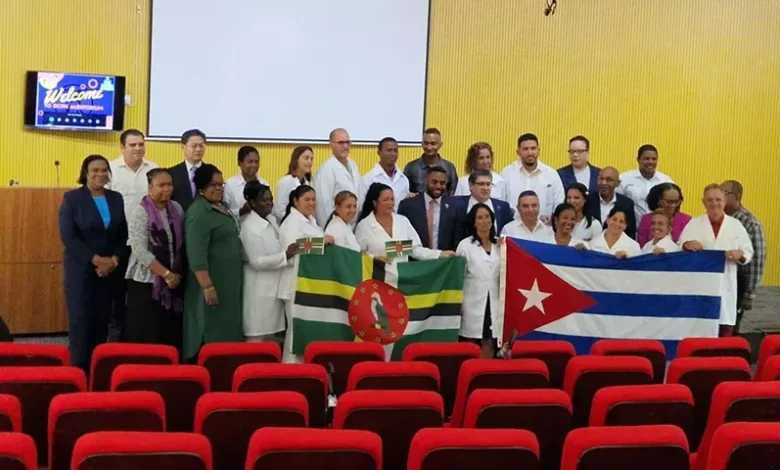Cuban Medical Brigade Impact on Dominica

The Cuban Medical Brigade has played a vital role in Dominica’s healthcare sector, offering medical expertise, training, and critical healthcare services for decades. Since the early 1980s, Cuban doctors, nurses, and technicians have been stationed in hospitals, clinics, and rural health centres, ensuring specialized care reaches underserved communities. Their contribution extends beyond immediate medical services, as they also train local medical personnel, introduce advanced treatment techniques, and support public health initiatives.
This long-standing partnership between Cuba and the Commonwealth of Dominica is based on bilateral cooperation agreements that have continuously evolved to address Dominica’s specific healthcare needs. Over the years, Cuban medical professionals have been instrumental in developing and improving essential services such as general surgery, intensive care, paediatrics, ophthalmology, and emergency response.
Diplomatic Relations and Medical Agreements
Medical collaboration is a cornerstone of diplomatic ties between Cuba and Dominica, symbolizing mutual cooperation in public health. Various agreements have been signed to formalize and expand the presence of Cuban doctors on the island. In 2021, the governments of both nations reaffirmed their commitment to healthcare cooperation, signing a renewed Cuba-Dominica Medical Agreement and ensuring the continued deployment of Cuban health professionals to Dominica’s hospitals and clinics.
The most notable program, “Operación Milagro” (Operation Miracle), has provided free eye surgeries to hundreds of Dominican patients, restoring sight to those affected by cataracts and other vision-related conditions. This initiative, supported by Cuban specialists, has allowed many individuals to regain independence and a higher quality of life.
Economic and Social Impact
The Cuban Medical Brigade has significantly reduced the financial strain on Dominica’s healthcare system, ensuring that critical medical services remain accessible to the population. Instead of relying on costly private medical professionals, Dominica benefits from highly trained Cuban doctors who provide essential services at a fraction of the cost.
The presence of these professionals has also strengthened Dominica’s public health infrastructure, leading to:
- Increased access to specialized care in rural and remote areas.
- Improved maternal and child healthcare services, reducing infant and maternal mortality rates.
- Support in managing infectious diseases through public health campaigns and community outreach.
Additionally, the collaboration fosters knowledge exchange, allowing local healthcare professionals to receive training from Cuban doctors, further enhancing Dominica’s medical workforce.
Challenges and International Politics
Despite its positive contributions, the Cuban Medical Brigade has faced challenges on the international stage. In March 2025, the United States introduced visa restrictions on officials from nations that employ Cuban medical personnel, claiming concerns over labour practices.
Caribbean leaders, including Dominica’s government, rejected these claims, asserting that Cuban doctors provide invaluable services that strengthen regional healthcare systems. The Caribbean Community (CARICOM) issued statements defending the medical agreements, emphasizing that the Cuban Medical Brigade remains essential in maintaining healthcare access and quality in small island nations.
As Dominica continues to develop its healthcare sector, the role of Cuban medical professionals remains crucial. The partnership has allowed the country to build a resilient healthcare system, ensuring that quality medical care is available regardless of economic status or location.




